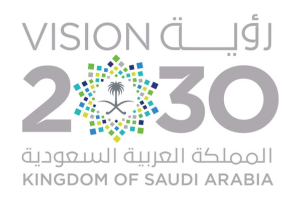feasibility study
the best feasibility study offices for consultancy and feasibility studies
a feasibility study (English: feasibility study) is a study carried out by the owner of a new project idea to enable him to implement the project and ensure its success. the feasibility study shows the required investments, the expected return, and the external factors affecting the project, such as state laws, competition, and technical and technical developments.
the relationship between feasibility study and strategic planning: the feasibility study relates to the study of a new project, while strategic planning is the study of the best areas in which the organisation can operate in the coming years and how it can compete in these areas. strategic planning is broader than feasibility study, because strategic planning identifies the most appropriate areas for future work, while feasibility study focuses on the study of a specific project or projects. however, they are very similar; both need to study the market, competitors, customers, external influencing factors, available capabilities that can be learnt or purchased, and end with the expected financial return.
consultants can be hired to prepare the feasibility study, or use pre-prepared feasibility studies for specific projects. hiring a consultant will incur the project the cost of preparing the study, while using feasibility studies prepared by organisations that encourage new projects may force you to choose from among the offered projects, which are often traditional projects. the feasibility study is very important because it saves the organisation a lot of time if the system does not meet the requirements. in the feasibility study of information systems, the same feasibility studies are not dealt with in economic projects; that is, not only the economic feasibility study of the system is conducted, but several studies including organisational, technical, economic, and operational studies.
organisational feasibility of the system: organisational feasibility focuses on how the proposed system will support the business strategy and priorities, and the extent of change the system will bring to the organisation.
technological feasibility study: determines the extent to which the proposed system can meet the organisation’s needs, and whether the required hardware or software development can be acquired and delivered on time.
economic feasibility study: it is concerned with the benefits that the system will achieve and the costs of its development and operation, where the expected cost of the system, additional revenues or profits are minimised, in addition to any other benefits that may result from the use of the proposed system.
to evaluate the investment opportunities of the project, the organisation uses the usual methods that rely on analysing the relationship between benefits and costs. some costs and benefits can be quantified, while others cannot be quantified. if the costs and benefits are of the type that can be quantified, they are called tangible costs and benefits, while if the costs and benefits are not currently identifiable but will lead to specific values in the future, they are called intangible costs and benefits.
meaning of a feasibility study: it is the study of the extent to which a project can be utilised.
components of a feasibility study: the economic feasibility study for any project consists of:
marketing feasibility study.
technical feasibility study.
financial feasibility study.
economic feasibility study.
social feasibility study.
environmental feasibility study.
sensitivity analysis of the project.
loan repayment methods.
legal feasibility study.
detailed feasibility study.
preliminary feasibility study.
feasibility study.
first: marketing Feasibility The marketing feasibility study is one of the most important stages of the feasibility study of any project. the market researcher must accurately determine
where to sell the project products.
the size and breadth of the market. attractive ideas must be presented to give the project strength and uniqueness to compete with existing projects similar to it. differentiation can be done in four key areas: product/Service, Price, Promotion, and Distribution.
secondly: the technical feasibility of the project The technical feasibility is an essential pillar of the economic feasibility study. the technical study depends on all the following studies such as financial, economic, social, and environmental studies. these studies cannot be conducted without a technical study that determines the technical feasibility of establishing the project.
thirdly: financial feasibility of the project Through the marketing and technical feasibility study, it is clear that every project requires costs and returns to be realised after its implementation. costs are divided into
investment costs: they include everything spent on the project from the beginning until the normal operating phase. these costs include the cost of establishing the project as well as the interest on long-term loans.
current costs: these include short-term costs such as operating supplies, wages, fuel, and energy.
fourth: the economic feasibility of the project The economic evaluation is similar to the financial evaluation of the project in using the same metrics. the main difference is that economic valuation is concerned with measuring the economic return to society, where financial prices (market prices) are adjusted to shadow prices that reflect the real economic value.
fifth: social feasibility of the project Social feasibility is concerned with distributing income fairly among the segments of society. important social aspects can be summarised as follows:
the impact of the project on creating new job opportunities.
income distribution in favour of low-income groups.
vI: environmental feasibility of the project Every project has environmental impacts, whether positive or negative. assessing the environmental impacts helps to minimise the environmental damage caused by the project and maximise the positive environmental benefits.
seventh: sensitivity analysis of projects One of the advantages of an accurate financial and economic analysis of a project is the ability to adapt to changes in circumstances. repeating the analysis under changing conditions helps in understanding how project outcomes may be affected.
vIII: loan repayment methods Loans are repaid over several years, and the amounts paid to repay loans and interest are part of the outflows or costs. the borrower and the analyser pay attention to the interest rate, the size of the loan, the repayment period, and the required collateral.
a Feasibility Study is a comprehensive evaluation of a proposed project to determine whether it can be successfully implemented. a feasibility study is an essential step in determining whether a project is worth the investment and resources needed, and helps to make informed decisions before implementation begins. a feasibility study encompasses a range of important elements including:
1. economic Feasibility Study
this is an assessment of the potential economic benefits of the project against the associated costs. the economic feasibility study includes analysing the expected financial returns and determining the feasibility of the investment in the long term.
2. financial Feasibility Study
focuses on the financial assessment of the project by examining the initial costs, operating costs, and potential revenues. this study also includes identifying funding sources, profit and loss projections, and analysing financial returns.
3. market Feasibility Study
this study helps to understand the target market, market size, and the type of demand for the products or services offered. it also includes analysing competition and customer needs, as well as marketing strategies.
4. technical Feasibility Study
this is an assessment of the technical feasibility of the project. this study involves examining the equipment, technology, and facilities needed to achieve the project’s objectives, as well as determining the availability of technical skills and technological capabilities.
5. legal Feasibility Study
this study involves checking the legal aspects of the project, such as obtaining the necessary permits and licences, compliance with local and international laws, and any legal obstacles that may affect the implementation of the project.
6. social Feasibility Study
focuses on the social impact of the project on the community. it includes studying how the project will affect job creation, improve the standard of living, and impact different social groups in the community.
7. environmental Feasibility Study
focuses on assessing the impact of the project on the environment. environmental assessments include monitoring potential negative or positive impacts on the ecosystem, and providing solutions to mitigate any environmental damage.
8. sensitivity Analysis
sensitivity analysis is an analysis that examines how changes in different factors will affect the outcome of the project. this analysis helps in estimating potential risks and gives an estimate of the likelihood of the project’s success under different conditions.
9. organisational Feasibility Study
focuses on the organisation’s ability to implement the project within the current organisational structure. this type of feasibility study includes analysing human resources, management structure, and the ability to manage the project.
10. loan Repayment Methods
loan repayment methods include the study of how to repay the loans owed to the project and determine the appropriate time periods for loan repayment and associated interest.
the importance of the feasibility study:
identifying opportunities and risks: the feasibility study helps identify the opportunities available to the project, as well as the risks it may face, which helps in making better strategic decisions.
achieving financial sustainability: by assessing the economic and financial feasibility, it is determined whether the project can achieve sustainable profits.
effective resource management: a feasibility study contributes to better resource management by identifying projected costs and potential returns, helping to allocate the budget more efficiently.
informed decision-making: it helps in making informed decisions on whether to move forward with the project, re-evaluate it, or even cancel the idea if it turns out to be unachievable.
types of feasibility studies:
pre-feasibility Study: this study is conducted in the early stages of the project to determine the overall project idea and assess its feasibility.
detailed Feasibility Study: conducted after the project has been preliminarily defined and used to plan each aspect of the project in more detail.
conclusion:
a feasibility study is an essential tool to determine the viability of a project idea before starting to implement it. by evaluating the financial, technical, marketing, legal, environmental, and social aspects, a feasibility study helps in making informed investment decisions that contribute to the success of the project and the achievement of the desired goals.
the best feasibility studies office Value Consulting, Feasibility Studies and Business Solutions
address: al Rumman Street, Al Murooj neighbourhood, Riyadh 12282
📞 Phone number: 966 53 660 9222
📧 E mail: info@value-consulting.sa
🌐 Website: value-consulting.sa
don’t hesitate to reach out to us for your first consultation for free!
we are here to help you turn your idea into a successful venture!





